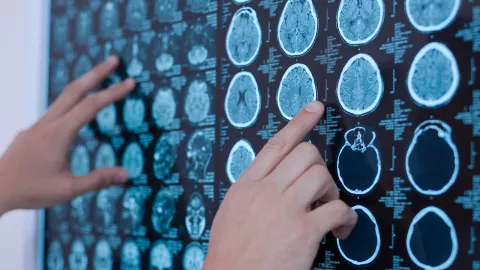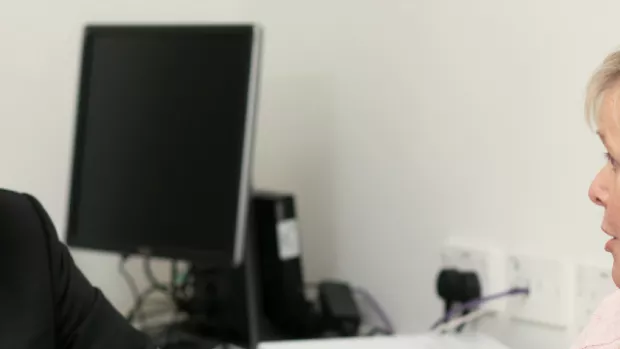
New HSCT study supports safety and effectiveness of treatment
HSCT aims to 'reset' the immune system by wiping it out and then regrowing it, using your stem cells. We know it's effective for some people with MS. Researchers continue to build evidence about how safe and effective HSCT is.
A new study in Sweden looked at people with relapsing remitting MS who were treated with haematopoietic stem cell transplantation (HSCT). It showed nearly three quarters of the people in the study had no new progression five years after treatment.
But the study didn’t compare HSCT with any other treatments. So it shows HSCT can work for some people. But it doesn’t show HSCT is better than other treatments.
What did they do?
The study looked at 174 people with relapsing remitting MS who had chosen to undergo HSCT. They were followed up to see if their disability worsened, stabilised or improved.
For the five years after having HSCT, 73% of people in the study had no relapses, no increase in EDSS score and no new or active lesions on their MRI scans.
Some people were followed up 10 years after having HSCT. This was only 19 people, but 12 of these people still had no evidence of new MS activity.
These new results are encouraging but only observe how disability progresses after HSCT and so reinforce the need for randomised controlled trials comparing HSCT with the most highly effective DMTs.Dr Sarah Rawlings, Executive Director of Research and External Affairs at the MS Society
Why should we be cautious?
This research supports previous research like the MIST trial, which showed 4-5 years after HSCT people had no new MS activity.
However, unlike the MIST trial this research doesn’t compare HSCT to other treatments. So we can’t use this information to say whether HSCT is more or less effective than other DMTs. And we can’t compare with other trials because the set-up is different.
So we need new trials to understand more about HSCT in comparison to other DMTs that might have fewer risks. For example, the StarMS trial is comparing HSCT with other highly effective treatments for relapsing remitting MS.
What does this research tell us?
In this study there were no treatment-related deaths, so it suggests the procedure is safe. The researchers say it means HSCT could be implemented within routine healthcare.
This study looked at autologous HSCT, where stem cells from your own body are collected then reintroduced following chemotherapy. So your body recognises the cells as familiar and is less likely to have a reaction.
Read more about current HSCT research
Dr Sarah Rawlings, our Executive Director of Research and External Affairs, says: “HSCT on the NHS is subject to strict eligibility criteria and can be difficult to access. We know HSCT doesn’t work for everyone with MS, but it has been an important development in MS treatment and some people see life changing results. This study provides further evidence as to how it can help slow progression of symptoms.
“These new results are encouraging but only observe how disability progresses after HSCT and so reinforce the need for randomised controlled trials comparing HSCT with the most highly effective DMTs.
The new StarMS trial, currently taking place in hospitals around the UK will do this. We would urge anyone considering HSCT or interested in taking part in the StarMS trial to discuss this with their neurologist."



